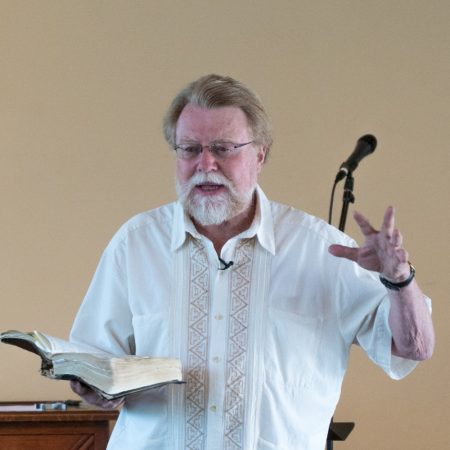Jay Grant’s message on Psalm 86
SERMON NOTES
Transforming Your Prayer Life
Some Essentials of Prayer From Psalm 86
- Why should we pray? First and foremost to speak with God; to tell God we love Him (worship, an intricate part of prayer); to ask for help when in trouble; to stand in the gap for others; and to emulate Jesus, to be like Him.
- Concentrated prayer isn’t easy – It takes discipline; you must sacrifice your time; it’s hard to stay focused; there can be spiritual warfare; but prayer can and will change your life and the life of others
- We must pray in faith – believing God not only hears, but will respond; yes, sometimes answers come immediately; sometimes there can be delays; and sometimes God says ‘no’; but we keep praying
- We pray because it shows our dependence upon God. When we pray we demonstrate how much we need God; that we are in no way sufficient in ourselves. But when we don’t pray, we make it clear we think we don’t need God. We foolishly believe we are self-sufficient, talented and smart enough that we can take care of any problem. We forget that Jesus said, “Apart from Me, you can do nothing.” John 15:5
- We pray because God answers. Extraordinary changes take place. There’s more power in prayer than anything else on the face of this earth. Prayer can change the tide of war. Prayer can raise the dead. Prayer can change cities. Prayer can revolutionize your life. Prayer can even shape history.
- When the lights go out, prayer turns them back on. When crisis hits and we are broken, and empty, and despairing and feeling hopeless, prayer lifts out souls, reignites faith, enlarges our hearts.
- Prayer catapults us into another dimension. We move into a heavenly realm. We enjoy the presence of God. The Holy Spirit can supernaturally flow through us as we pray, releasing power. Faith often rises to a new level.
- Expressing prayer – the dance of two camps (Song of Sol 6:13). The dance of two camps means two different views or two different opinions. With prayer there are two camps. There’s the “quiet camp, their favorite verse is “be still and know I am God”; this is the camp of Christian mystics, of Francis of Assisi, Fenelon, Blaise Pascal, Thomas a Kempis, Jeanne Guyon and in our day Brennan Manning, Richard Foster, Thomas Merton. This is contemplative, meditative prayer. Think our Advent and Lent services.
- But there is also the “not-so-quiet camp”, the “passionate intercessory” camp. A favorite verse is “all day and all night they shall not be silent.” This is the vocal prayer camp. Calling out to God in aggressive faith, singing and shouting and declaring and prophesying. This is the camp of Rees Howell, John and Charles Wesley, Billy Sunday, Dwight Moody, Smith Wigglesworth and in our day Lou Engle, John G. Lake, Mike Bickle, Bill Johnson, Heidi Baker, Cindy Jacobs and Jim Goll. BOTH ARE NEEDED!
- We love others when we pray for them. The greatest thing we can do for someone else is to pray for them. When someone is in crisis, there’s nothing more comforting than to hear these words, “I’m praying for you.
I Traveled on My Knees
Last night I took a journey to nations across the seas
I didn’t go by boat or plane, I traveled on my knees
I saw so many people with scars and wounds within
God told me I could pray, there was oil to pour from Him
He said, “You pray. I’ll meet their need, you call and I will hear
Be concerned about the fate of those both far and near”
And so I tried it, knelt in prayer, gave up some hours of ease
I felt the Lord right by my side while traveling on my knees
I prayed on and saw them helped, the badly wounded healed
God’s workers strength renewed, while laboring in the field
I said, “Yes Lord, I have a job, my desire is Your will to please
I can go and heed Your call while traveling on my knees”

